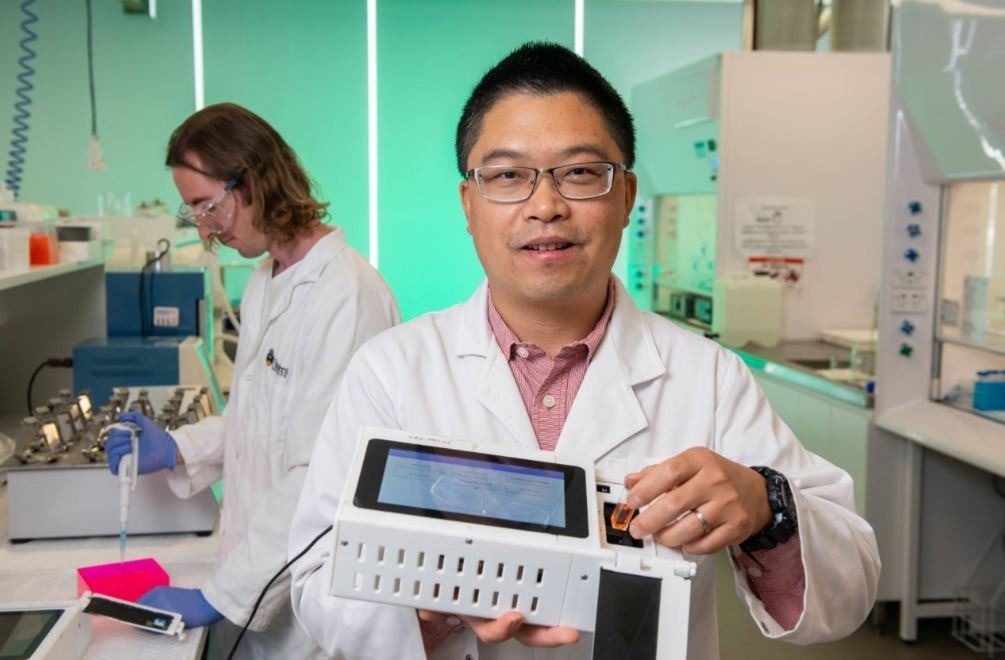A new method for early detection of chronic kidney disease, which affects an estimated 7% of the world’s population, has been shown to have potential to service rural and remote patients and communities with limited medical services.

Image Credit: Flinders University
An affordable and portable biosensor device put to the test by Flinders University researchers has been shown to accurately measure levels of albumin in patients’ urine in a new clinical trial conducted at a South Australian hospital.
The results, published in Sensing and Bio-Sensing Research (Elsevier), uses an advanced open access system which measures urine biomarker concentrations via an aggregation induced emission biosensor system also adaptable for potential monitoring of cancers, amyloid plaque buildup, and other disease markers.
The results measured in light wavelengths by the system had a strong correlation to the clinical values of the samples tested by pathology. A reliable, portable device to accurately measure chronic kidney disease could be rolled out to point-of-care testing sites in the community to reduce the need for patients to regularly visit a hospital or specialist renal clinic.”
Professor, Youhong Tang, Lead Researcher from Flinders University’s Institute for Nanoscale Science and Technology
The system, which requires a digital camera, computer, single light source and access to the software, can be operated by a technician without the need for a clinical setting or expert diagnostic laboratory, researchers say.
The platform in the proof-of-concept study was able to detect the variation of albumin level in urine sample down to 25mg/litre, making it a potential device for detecting and monitoring albuminuria levels for kidney disease.
Source:
Journal reference:
Pham, A.T.T., et al. (2022) Qualitative and quantitative determination of butanol in latex paint by fast gas chromatography proton transfer reaction mass spectrometry. Sensing and Bio-Sensing Research. doi.org/10.1016/j.sbsr.2022.100504.